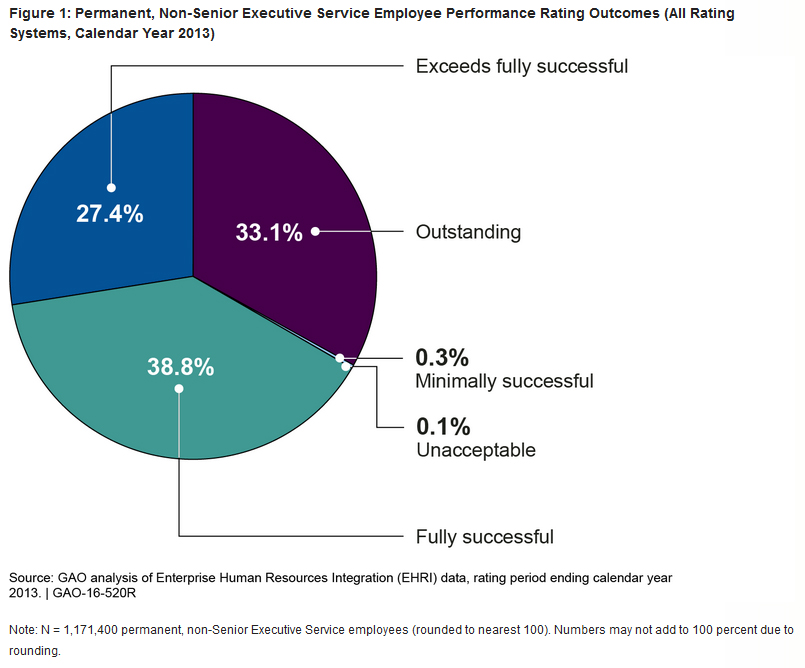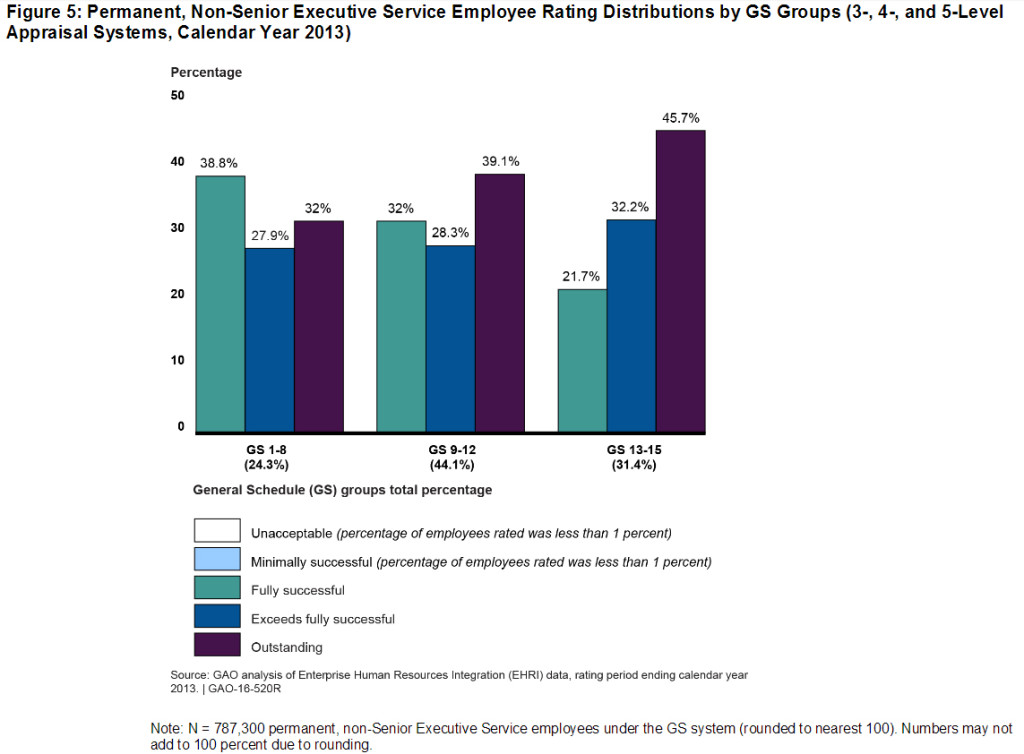

Either federal employees are successful at their jobs 99 percent of the time, or the ratings systems used by federal agencies to measure employees' performance are...
Either federal employees are successful at their jobs 99 percent of the time, or the ratings systems used by federal agencies to measure their performance are flawed.
A recent Government Accountability Office report found that in 2013 — the most recent data available — more than 99 percent of non-Senior Executive Service employees received a rating of fully successful or higher. GAO looked at multiple different appraisal systems, ranging from a pass/fail to a five level rating system.

“Results like this aren’t terribly surprising in situations when a ‘generic’ or graphic rating system is used,” said Cindy Parker, assistant professor of management at George Mason University School of Business. “Unless there are very clear standards that define, for each particular job, what types of job behaviors and results would justify each point on the rating scale, many managers feel compelled to be lenient.”
The report acknowledges this point as well, saying that agency leadership needs to make it clear what constitutes acceptable results, and what is considered to be “outstanding.”
GAO’s report also notes the difference between an “appraisal system” and an “appraisal program.” A system includes only the rating process itself, such as pass/fail. A program involves much more, including “specific procedures, methods and requirements for planning, monitoring and rating employee performance.”
While the Office of Personnel Management is required to approve each agency’s appraisal system, it is not required to approve appraisal programs. The report emphasized the importance of regular, individual feedback accompanying ratings to improve performance and engagement.
“As noted by the Merit Systems Protection Board, the annual performance appraisal process is not the same thing as good performance management,” the report said.
Another issue that can occur when these rating systems are not accompanied by an appraisal program is rating inflation.
“One of the key points is the fact that having a rating level between satisfactory and outstanding clearly encourages rating inflation,” said Jeff Neal, senior vice president at ICF International and former chief human capital officer at the Homeland Security Department. “If you look at the numbers, that is the biggest driver.”
There are other issues that lead to rating inflation as well, Parker said. If standards aren’t clearly defined ahead of time, managers may think it unfair to rate an employee below satisfactory. A lack of consequences or linkage to rewards like pay raises and promotions disincentivizes management from putting any real thought or effort into ratings.
There is also the possibility that, especially in a five level rating system, used in 71.4 percent of the cases reviewed by GAO, “successful” may be viewed as an undesirable result, equitable to a “C” grade in school.
“In addition, in organizations with high job security, where it is very difficult to terminate an employee for performance reasons, managers might not feel compelled to document low performance,” Parker said.

Neal pointed out that even in a pass/fail system, failing ratings are unusual. The GAO report said that 99.9 percent of employees reviewed under such a system received pass ratings.
GAO also found that the more senior an employee was, the more likely they were to be rated highly. Managers rated feds in General Schedule 13 to 15 positions as “outstanding” or “exceeds fully successful” 78 percent of the time, and GS 9 through 12 employees 67 percent of the time.
Copyright © 2025 Federal News Network. All rights reserved. This website is not intended for users located within the European Economic Area.
Daisy Thornton is Federal News Network’s digital managing editor. In addition to her editing responsibilities, she covers federal management, workforce and technology issues. She is also the commentary editor; email her your letters to the editor and pitches for contributed bylines.
Follow @dthorntonWFED

